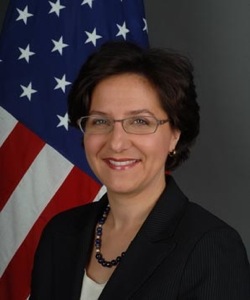Religion & State After the Arab Spring: Devising Ground Rules for a New Era
Showing the Religion and State after the Arab Spring: Devising Ground Rules for a New Era Video
Monday, May 14, 2012
12:30 p.m. - 3:30 p.m. EDT
For decades, in a quest to achieve enduring stability, authoritarian governments in Egypt, Tunisia, Libya, Syria, and elsewhere placed a tight grip on religious organizations. The widespread subordination of religion to state not only stifled freedom, however, but also undermined stability by fomenting religious extremism. With the partial political openings afforded by the Arab Spring, there is a new prospect: the widespread subordination of state to religion. Islamist groups, parties, and leaders are ascending into a dominant position in Egypt, Tunisia, and Libya, and could be positioned to do so in a post-Assad Syria as well. There is therefore a new danger: that Islamist dominance could yield new threats to stability and freedom, thus thwarting the promise of the Arab Spring and threatening American interests.
To achieve the kind of stable democracy that avoids past cycles of instability, authoritarianism, and extremism, can there be a new balance between religion and state in North Africa and the Middle East? To achieve the kind of governance that is good for the region and good for America's long-term interests, can new ground rules be devised to accommodate religious communities as well as promote free and stable government?
Discover similar content through these related topics and regions.
Image Gallery
Image Gallery
/1

Religion & State After the Arab Spring: Devising Ground Rules for a New Era






